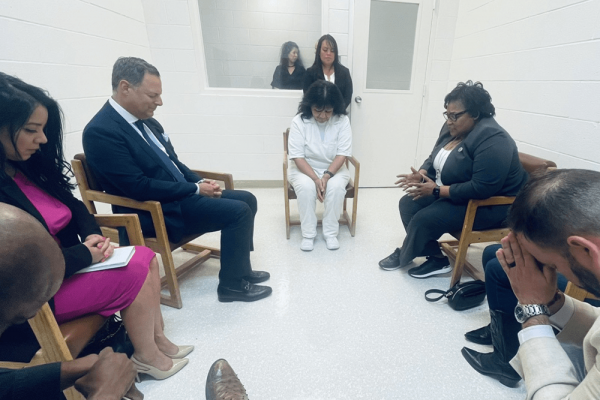Apr 22, 2022
“We don’t think the death penalty is in line with Christian values,” said Cameron Vickrey, a staff member with Fellowship Southwest, a network of churches dedicated to social service. While she has always opposed the death penalty on compassionate grounds, Vickrey said Lucio’s case caught her attention because of new evidence demonstrating the likelihood that Lucio is innocent.
Read the Full Article

Already a subscriber? Login
